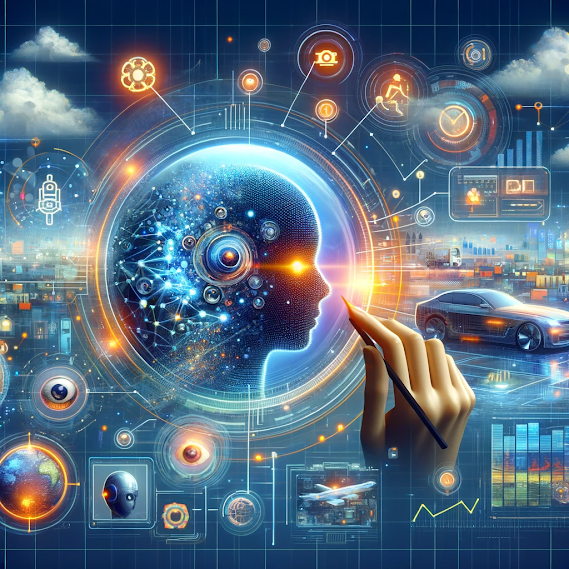🚀 The Integration of Artificial Intelligence in Healthcare: A Transformative Approach to Modern Challenges
🚀 The Integration of Artificial Intelligence in Healthcare: A Transformative Approach to Modern Challenges
The modern healthcare system, faced with increasing longevity, rising costs, and evolving patient expectations, is in dire need of innovative solutions. The integration of Artificial Intelligence (AI) stands out as a transformative approach to these challenges, offering vast improvements in care outcomes, patient experiences, and access to healthcare services. AI's role in enhancing productivity and efficiency is pivotal, enabling healthcare systems to extend superior care to a broader population.
The Challenges of a Strained Healthcare System
👴 The increasing aging population is a significant strain on healthcare systems. By 2050, it's projected that one in four people in Europe and North America will be over 65. This demographic shift presents complex healthcare challenges, including a growing demand for services, spiraling costs, and a workforce struggling to meet patient needs. AI's role in automating and enhancing healthcare processes is crucial in addressing these issues.
🤖 For healthcare practitioners, #AI brings a sigh of relief. It not only optimizes care outcomes but also enhances their work life. By automating routine tasks, AI allows medical professionals to focus more on direct patient care. This shift reduces burnout and improves job satisfaction, essential factors in maintaining a robust healthcare workforce.
🔍 AI's Current Impact in Healthcare
AI is already making significant strides in the healthcare sector. It connects disparate patient data, providing insights for better decision-making. In both acute and post-acute settings, AI's role in automating vital sign monitoring, which is often prone to human error, significantly improves patient care. On an enterprise level, AI optimizes resource use, such as equipment and staff, through predictive analytics.
Additionally, AI's applications extend beyond hospital walls. It integrates with wearable technology, allowing for convenient at-home data collection and monitoring. This expansion of #AI applications in healthcare not only improves patient outcomes but also enhances access to care.
Ethical Considerations and Future Directions
📈 The immense potential of AI in healthcare also sparks ethical debates concerning data use and the broader implications of AI applications. A report by EIT Health and McKinsey & Company delves into these aspects, examining AI's impact on practitioners and organizations across Europe and beyond. This exploration is crucial in navigating the ethical landscape of AI in healthcare, ensuring responsible and equitable use of technology.
The future of healthcare with AI integration looks promising. AI tools and AI assistants are set to revolutionize various aspects of healthcare delivery, from diagnosis to treatment and patient management. AI applications in healthcare are not just about technology; they're about enhancing human health and well-being.
AI Assistants and Tools: Enhancing Healthcare Delivery
AI assistants in healthcare are becoming increasingly sophisticated, offering support to both patients and healthcare providers. These AI tools can handle tasks like appointment scheduling, patient reminders, and even preliminary diagnostics. This level of automation and support helps streamline processes, making healthcare more accessible and efficient.
The Road Ahead: AI's Expanding Role in Healthcare
The integration of AI in healthcare is just beginning. As technology advances, we can expect AI applications to become more intricate and tailored to individual patient needs. This evolution will likely lead to more personalized treatment plans and improved patient outcomes.
AI's role in predictive analytics cannot be understated. By analyzing vast amounts of data, #AI can predict outbreaks, identify risk factors for diseases, and even help in developing new treatments. This predictive power is essential in proactive healthcare management and in tackling global health crises.
The integration of #AI in healthcare represents a significant shift towards more efficient, effective, and personalized care. As AI tools and applications continue to evolve, they offer the potential to address some of the most pressing challenges in healthcare today. While ethical considerations remain a crucial part of this conversation, the benefits of #AI in healthcare are clear. It is an exciting time for healthcare innovation, with AI at the forefront of transforming how care is delivered and experienced in the 21st century.
Try the latest AI tools for business here for free!

.png)
.jpeg)

.jpg)
Comments
Post a Comment